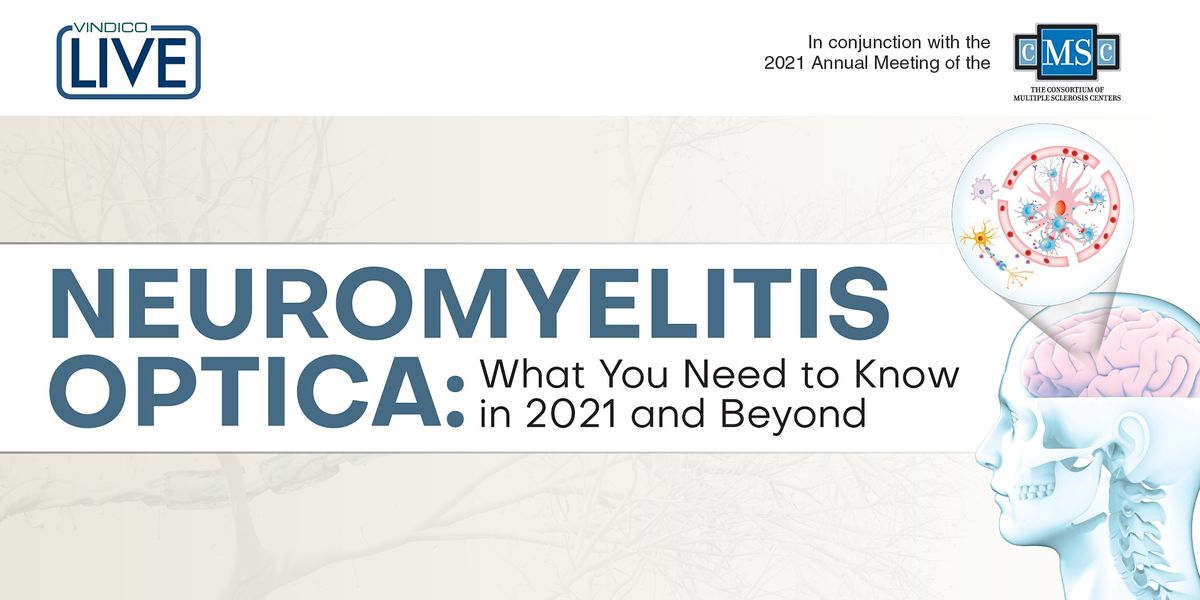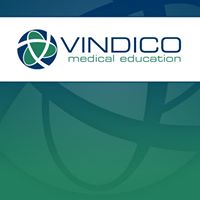
About this Event
Hybrid CME/CPE/CNE Dinner SymposiumActivity Chair
Patricia K. Coyle, MD, FAAN, FANA
Professor and Vice Chair (Clinical Affairs)
Department of Neurology
Director
Multiple Sclerosis Comprehensive Care Center
Stony Brook University Medical Center
Stony Brook, NY
Faculty
Bruce A. C. Cree, MD, PhD, MAS, FAAN, FANA
George A. Zimmermann Endowed Professor in Multiple Sclerosis
Professor of Clinical Neurology
Clinical Research Director
UCSF Weill Institute for Neurosciences
Department of Neurology
University of California San Francisco
San Francisco, CA
Prem S. Subramanian, MD, PhD
Professor of Ophthalmology, Neurology, and Neurosurgery
University of Colorado School of Medicine
Vice Chair for Academic Affairs
Division Head, Neuro-Ophthalmology
University of Colorado Sue Anschutz-Rodgers Eye Center
Aurora, CO
Megan R. Weigel, DNP, ARNP-c, MSCN
Advanced Registered Nurse Practitioner
First Coast Integrative Medicine and Universal Neurological Care
Jacksonville, FL
Overview
Neuromyelitis optica spectrum disorder (NMOSD) is a rare, relapsing, autoimmune disease of the central nervous system, mainly manifesting through recurrent attacks of optic neuritis and longitudinally extensive transverse myelitis. Diagnosing NMOSD is challenging, but diagnostic criteria—based on the presence of core clinical characteristics, aquaporin-4 antibody status, and magnetic resonance imaging—have been developed that allows for a differential diagnosis from other inflammatory disorders of the central nervous system. Early stages are frequently misdiagnosed as multiple sclerosis. In addition, treatment options for NMOSD have been historically limited, until recently—when the US Food and Drug Administration approved several novel therapies for the treatment and prevention of NMOSD attacks. Further therapies are currently under clinical review for the same indication. These approved and emerging therapies are changing the treatment paradigm for NMOSD, providing enhanced clinical outcomes for these patients with the goal of reducing relapse through early intervention. In this CE program, Neuromyelitis Optica: What You Need to Know in 2021 and Beyond, experts in the field will present didactic information and cases, as well as engage in a panel discussion, to summarize evidence-based diagnostic criteria and best practices that assist in the differential diagnosis of NMOSD, as well as differentiate current NMOSD therapeutics based on their mechanisms of action, efficacy, safety, and administration. This program will also examine interdisciplinary best practices that can assist in the acute and long-term care of patients with NMOSD.
Agenda
8:00 PM
Registration and Dinner
8:30 PM
Introduction and Pretest
Patricia K. Coyle, MD, FAAN, FANA
8:35 PM
Neuromyelitis Optica Spectrum Disorder: Understanding Its Pathophysiology and the Need for Screening
Patricia K. Coyle, MD, FAAN, FANA
8:45 PM
NMOSD: Addressing Diagnostic Challenges
Prem S. Subramanian, MD, PhD
9:10 PM
Exploring Therapeutic Options for NMOSD: How Can the Evidence Be Applied to Practice?
Bruce A. C. Cree, MD, PhD, MAS, FAAN, FANA
9:30 PM
Case Panel Discussion: Overall Management of NMOSD
Megan R. Weigel, DNP, ARNP-c, MSCN
9:45 PM
Posttest and Q&A
10:00 PM
Conclusion
Learning Objectives
Upon successful completion of this activity, participants should be better able to:
Review evidence-based criteria that aids in early detection and staging of NMOSD.
Differentiate current NMOSD therapeutics based on their mechanisms of action, and methods of administration.
Assess the evidence regarding the safety and efficacy of NMOSD treatments, including their ability to control acute attacks and prevent future relapses.
Examine interdisciplinary best practices that can assist in the acute and long-term care of patients with NMOSD.
Target Audience
The intended audience for this activity is neurologists, nurses, pharmacists, physician assistants, nurse practitioners, and other health care professionals involved in the management of patients with NMOSD.
This continuing education activity is provided by Vindico Medical Education.
This activity is supported by an educational grant from Horizon Therapeutics USA, Inc.
This symposium is neither sponsored nor endorsed by the Consortium of Multiple Sclerosis Centers.
Vindico Medical Education is accredited by the Accreditation Council for Continuing Medical Education (ACCME) to provide continuing medical education for physicians.
Vindico Medical Education designates this live activity for a maximum of 1.5 AMA PRA Category 1 Credit(s)™. Physicians should claim only the credit commensurate with the extent of their participation in the activity.
Vindico Medical Education, LLC, is accredited as a provider of continuing nursing education by the American Nurses Credentialing Center’s Commission on Accreditation.
Vindico Medical Education will provide 1.5 contact hours for nurses. Nurses should claim only the credit commensurate with theextent of their participation in the activity.
Vindico Medical Education is accredited by the Accreditation Council for Ph*rm*cy Education (ACPE) as a provider of continuing Ph*rm*cy education.
This program is acceptable for 1.5 contact hour of ACPE Continuing Education Credit. The ACPE Universal Program Number is 0482-0000-21-023-L01-P, effective 10/25/2021. This is a knowledge-based activity and there is no fee to attend.
In accordance with the Accreditation Council for Continuing Medical Education and American Nurses Credentialing Center’s Standards for Commercial Support, all planners, teachers, and authors involved in the development of CME/CNE content are required to disclose to the accredited provider their relevant financial relationships. Relevant financial relationships will be disclosed to the activity audience.
Faculty, topics, program schedule, and credit hours are subject to change. Recording of any manner is prohibited without written permission from the program committee.
Event Venue & Nearby Stays
Rosen Shingle Creek, 9939 Universal Blvd, Orlando, United States
CAD 0.00
